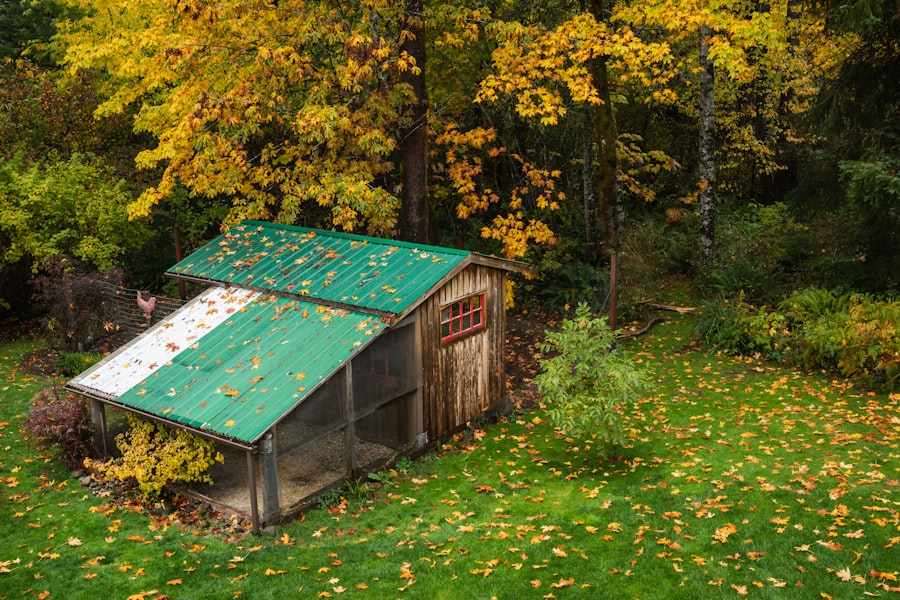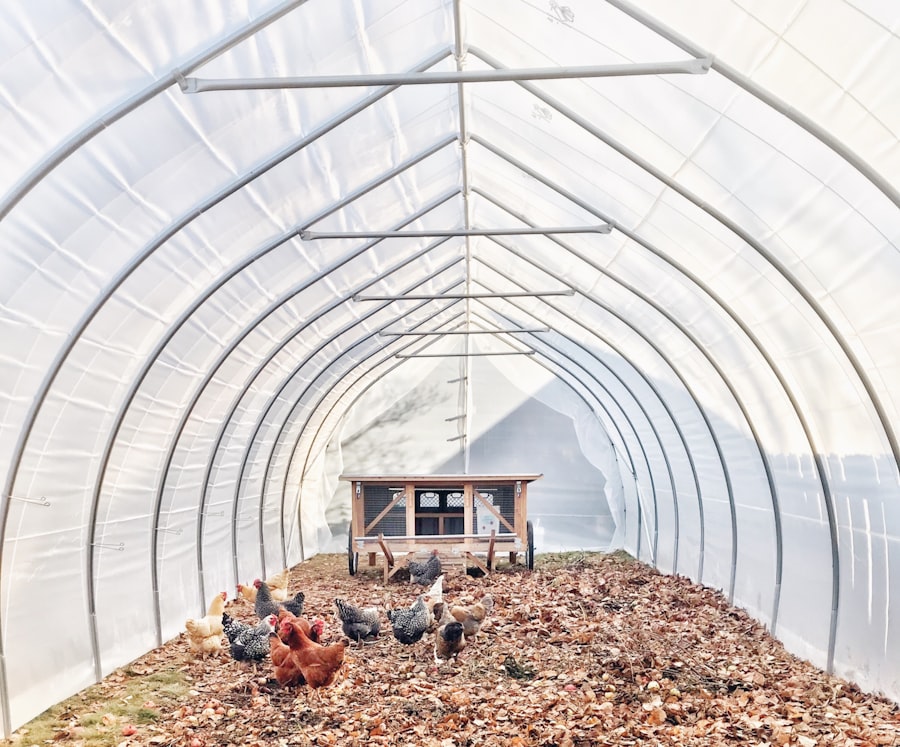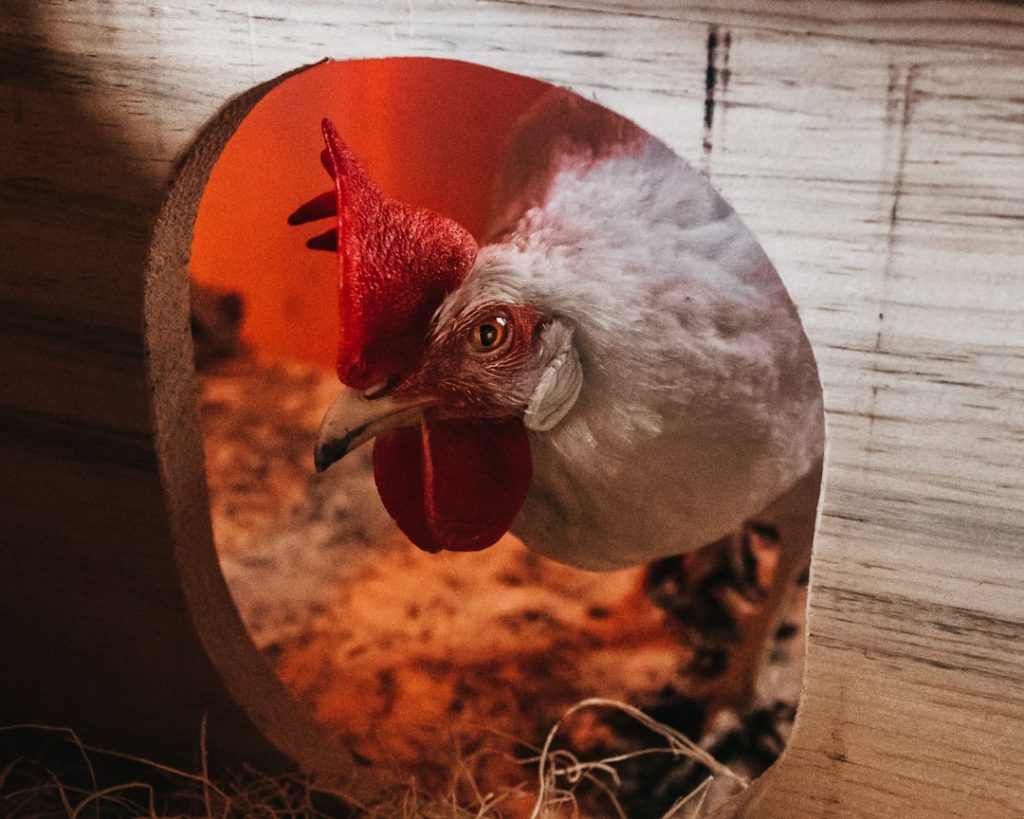When selecting chicken breeds for a backyard coop, several factors should be considered. Climate is a crucial consideration, as some breeds are better adapted to cold weather, while others thrive in warmer conditions. The purpose of raising chickens is also important, whether for egg production, meat, or as pets.
Egg-laying breeds include Rhode Island Reds, Leghorns, and Australorps, while Cornish Cross and Freedom Rangers are popular for meat production. Dual-purpose breeds like Plymouth Rocks or Orpingtons can serve both purposes. Temperament is another significant factor, especially for families with children or those who plan to handle the chickens frequently.
Breeds like Silkies and Buff Orpingtons are known for their docile and friendly nature. The size of the breed should be considered in relation to available space. Larger breeds such as Jersey Giants or Brahmas require more room, while bantam breeds are suitable for smaller areas.
Noise levels can be important in residential areas, with quieter breeds like Silkies or Cochins being preferable. Foraging ability is relevant for those with ample outdoor space. Breeds like Easter Eggers or Sussex are known for their foraging skills.
Aesthetic preferences can also play a role in breed selection, with options like Polish or Frizzles offering unique appearances. Thorough research and careful consideration of specific needs and preferences are essential when choosing chicken breeds for a backyard flock.
Table of Contents
- 1 Building a Coop
- 2 Providing Proper Nutrition
- 3 Ensuring Safety and Security
- 4 Maintaining Cleanliness
- 5 Health and Veterinary Care
- 6 Integrating Chickens into Your Household
- 7 FAQs
- 7.1 What are the basic requirements for a chicken house?
- 7.2 What size should a chicken house be?
- 7.3 What materials are commonly used to build a chicken house?
- 7.4 How should a chicken house be ventilated?
- 7.5 What features should a chicken house have for nesting and roosting?
- 7.6 How can a chicken house be predator-proofed?
Key Takeaways
- Consider the climate, space, and purpose of raising chickens when choosing the right breed for your needs.
- When building a coop, ensure it is secure, well-ventilated, and provides enough space for the number of chickens you plan to raise.
- Provide proper nutrition by offering a balanced diet of commercial feed, fresh water, and occasional treats like fruits and vegetables.
- Ensure safety and security by installing predator-proof fencing, locking coop doors at night, and regularly inspecting for any potential hazards.
- Maintain cleanliness by regularly cleaning the coop, replacing bedding, and keeping food and water containers free of debris.
- Schedule regular health check-ups with a veterinarian and be prepared to address common health issues such as parasites and respiratory infections.
- Integrate chickens into your household by gradually introducing them to other pets and family members, and providing opportunities for social interaction.
Building a Coop
Size and Layout Considerations
When designing and constructing a coop, it’s important to consider the size and layout. The general rule of thumb is to provide at least 2-3 square feet of space per chicken inside the coop, and 8-10 square feet per chicken in the outdoor run. This allows for ample space for the chickens to move around and prevents overcrowding. Additionally, consider the layout of the coop, including nesting boxes, roosting bars, and ventilation. Nesting boxes should be placed in a quiet and dark area of the coop to encourage egg laying, while roosting bars should be positioned higher up to mimic their natural instinct to perch at night.
Materials and Ventilation
Proper ventilation is also crucial to prevent moisture buildup and ensure good air circulation. When it comes to materials, choose durable and predator-proof materials such as hardware cloth and pressure-treated lumber to ensure the safety and security of your chickens.
Location, Design, and Personal Touches
When building a coop for your backyard chickens, there are several key considerations to keep in mind. First and foremost, it’s important to choose a location for the coop that is well-drained and provides protection from the elements. This will help ensure that your chickens stay dry and comfortable in all weather conditions. Additionally, consider the orientation of the coop to maximize natural light and warmth from the sun. When designing the coop, it’s important to include features that make cleaning and maintenance easier, such as removable roosting bars and nesting boxes. This will help ensure that the coop stays clean and hygienic, which is essential for the health of your chickens. Finally, consider adding some personal touches to the coop to make it a welcoming and enjoyable space for both you and your chickens. This could include adding windows for natural light, painting the coop in cheerful colors, or adding some decorative elements to make it feel like a home for your feathered friends.
Providing Proper Nutrition

Proper nutrition is essential for the health and well-being of your backyard chickens. When it comes to feeding your flock, it’s important to provide a balanced diet that meets their nutritional needs. A good quality commercial feed formulated specifically for chickens is a great starting point.
Look for feeds that are appropriate for their life stage (chickens require different nutrients at different stages of life) and consider options such as organic or non-GMO feeds if that is important to you. In addition to commercial feed, chickens also benefit from access to fresh greens, fruits, and vegetables as well as grit and oyster shell for calcium and digestion. It’s important to provide access to clean water at all times as well.
Finally, consider supplementing their diet with treats such as mealworms or scratch grains in moderation as a way to provide enrichment and variety in their diet. In addition to providing a balanced diet, it’s important to consider the feeding habits of your chickens when providing proper nutrition. Chickens are natural foragers and enjoy scratching and pecking at the ground in search of insects and plants.
Providing access to a large outdoor area where they can forage will not only provide them with additional nutrients but also keep them mentally stimulated and physically active. Additionally, consider using feeders that minimize waste and prevent contamination from droppings or dirt. This will help ensure that your chickens have access to clean and fresh food at all times.
Finally, monitor their food consumption regularly and adjust their diet as needed based on their activity level, age, and overall health.
Ensuring Safety and Security
Ensuring the safety and security of your backyard chickens is crucial in protecting them from predators and other potential dangers. When designing your coop and outdoor run, it’s important to use sturdy materials such as hardware cloth to prevent predators from gaining access. Additionally, consider adding predator-proof latches to doors and windows to prevent unwanted entry.
Regularly inspect the coop for any signs of wear or damage that could compromise its security. When allowing your chickens free-range time in your yard, consider using fencing or netting to create a secure area that prevents them from wandering into unsafe areas or becoming easy targets for predators. Finally, consider installing motion-activated lights or alarms as an additional deterrent against nocturnal predators.
In addition to physical security measures, it’s important to consider other potential threats to the safety of your chickens. This includes monitoring their health regularly for signs of illness or injury and providing prompt veterinary care when needed. Additionally, be mindful of potential hazards in their environment such as toxic plants or chemicals that could pose a risk if ingested.
Finally, consider the safety of your chickens in extreme weather conditions by providing adequate shelter from heat, cold, wind, and rain.
Maintaining Cleanliness
Maintaining cleanliness in your chicken coop is essential for the health and well-being of your flock. Regular cleaning helps prevent the buildup of bacteria and parasites that can lead to illness and disease. When it comes to cleaning the coop, start by removing soiled bedding from nesting boxes and roosting bars on a regular basis.
Replace bedding with fresh material such as straw or wood shavings as needed. Additionally, thoroughly clean the entire coop including floors, walls, and any equipment such as feeders or waterers on a regular basis using a mild detergent or disinfectant. It’s also important to regularly remove droppings from the outdoor run area to prevent ammonia buildup and maintain a clean environment for your chickens.
In addition to regular cleaning, it’s important to establish a routine for maintaining cleanliness in your chicken coop. This includes implementing measures such as using deep litter bedding systems that promote natural decomposition of waste material while minimizing odors and reducing the need for frequent cleaning. Additionally, consider using natural pest control methods such as diatomaceous earth or herbs like lavender or mint that can help repel insects and parasites while adding a pleasant scent to the coop.
Health and Veterinary Care

Recognizing Signs of Illness
Additionally, be mindful of any signs of illness such as lethargy, abnormal breathing, or changes in egg production which may indicate an underlying health issue.
Preventative Care Measures
It’s important to establish a relationship with a poultry veterinarian who can provide guidance on preventative care measures such as vaccinations or deworming as well as treatment options if needed. In addition to regular health checks, it’s important to provide proper preventative care measures for your backyard chickens.
Biosecurity and Parasite Control
This includes implementing biosecurity measures such as quarantining new birds before introducing them into your flock to prevent the spread of disease. Additionally, consider providing regular access to dust baths which help control parasites such as mites or lice that can affect their health.
Integrating Chickens into Your Household
Integrating chickens into your household can be a rewarding experience that brings joy and entertainment to your family. When introducing new chickens into your flock or integrating them into your household environment, it’s important to do so gradually to minimize stress and potential conflicts among birds. This includes providing separate living quarters initially before gradually allowing them supervised interactions with existing flock members.
In addition to integrating new birds into your flock, it’s important to establish boundaries and guidelines for interacting with your chickens within your household environment. This includes teaching children how to handle chickens gently and respectfully while also establishing rules around feeding treats or interacting with them in designated areas. In conclusion, raising backyard chickens can be a fulfilling experience that provides fresh eggs, natural pest control, and entertainment for you and your family.
By carefully considering factors such as breed selection, coop design, nutrition, safety measures, cleanliness maintenance, health care practices, and household integration guidelines you can create a safe and comfortable environment for your feathered friends while enjoying all the benefits they have to offer.
If you’re considering keeping chickens, it’s important to have a suitable coop for them to live in. One important factor to consider is the size of the coop. According to a helpful article on Poultry Wizard, “How Big Does a Coop Need to Be for a Chicken?” discusses the ideal coop size for chickens to ensure they have enough space to live comfortably and lay eggs. This article provides valuable information for anyone looking to start their own backyard flock. (source)
FAQs
What are the basic requirements for a chicken house?
A chicken house should provide shelter, protection from predators, adequate ventilation, and space for nesting and roosting.
What size should a chicken house be?
The size of a chicken house will depend on the number of chickens being housed. As a general rule, each chicken should have at least 2-3 square feet of space inside the coop and 8-10 square feet in the outdoor run.
What materials are commonly used to build a chicken house?
Common materials for building a chicken house include wood, metal, and plastic. It’s important to use materials that are durable, easy to clean, and provide good insulation.
How should a chicken house be ventilated?
A chicken house should have windows or vents to allow for proper air circulation. This helps to prevent the buildup of ammonia from chicken waste and keeps the coop at a comfortable temperature.
What features should a chicken house have for nesting and roosting?
A chicken house should have nesting boxes where hens can lay their eggs, as well as roosting bars for the chickens to perch on at night.
How can a chicken house be predator-proofed?
To protect chickens from predators, a chicken house should have secure doors and windows, as well as a sturdy floor and walls. It’s also important to bury wire mesh around the perimeter to prevent digging predators from gaining access.
Meet Walter, the feathered-friend fanatic of Florida! Nestled in the sunshine state, Walter struts through life with his feathered companions, clucking his way to happiness. With a coop that’s fancier than a five-star hotel, he’s the Don Juan of the chicken world. When he’s not teaching his hens to do the cha-cha, you’ll find him in a heated debate with his prized rooster, Sir Clucks-a-Lot. Walter’s poultry passion is no yolk; he’s the sunny-side-up guy you never knew you needed in your flock of friends!







